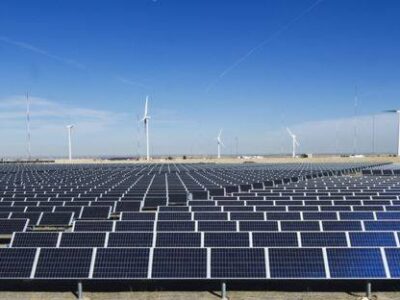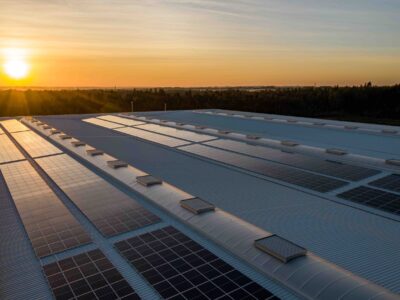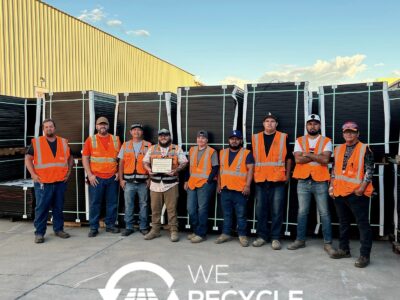One of the main barriers to the wider adoption of solar energy systems is the cost. Prices are usually listed by kilowatt, and the average home solar system in the U.S. is 10 kilowatts, according to HomeServe, a provider of home repair solutions. Based on that formula, the average installation price typically ranges between $10,000 and $26,000.
That’s a big piece of change for most homeowners, even when you factor in tax incentives and other perks for going solar. One way to help lower costs is through the power of scale — forming coalitions that can make group purchases to get better deals.
That’s the idea behind Solarize the Triangle, a partnership of 11 communities in the Triangle region of North Carolina designed to help residents and businesses reduce their solar photovoltaic system installation costs.
The Triangle Sustainability Partnership developed the initiative, which launched on Aug. 10, 2022. Communities involved include Chatham, Durham, and Orange counties; the cities of Durham and Raleigh; and the towns of Apex, Cary, Carrboro, Chapel Hill, Hillsborough, and Morrisville. The Triangle J Council of Governments and Solar CrowdSource are facilitating the launch.
According to the RaleighNC.gov website, Solarize the Triangle aims to help residents, businesses, and nonprofits “reduce energy expenses and save on the cost of renewable energy systems by obtaining volume discounts on materials and installation services.”
It is part of a broader movement of Solarize campaigns driven by community group purchasing and a tiered bulk purchasing concept. Savings for all participants get bigger as more residents and business owners contract for solar installations through the program.
Solar CrowdSource has led similar efforts in several communities across the U.S. through Solarize or crowdfunding initiatives. In addition to the Triangle region, other campaigns are active in Kansas, Oklahoma, Georgia, and Hawaii. Past operations have been held elsewhere in Georgia and North Carolina. Solar CrowdSource partners with various nonprofits, companies, and community groups in all of its local campaigns.
In addition to making solar energy more affordable, Solarize campaigns aim to:
- Make solar energy more accessible through a competitive bid process involving contractors and materials.
- Educate and engage the community via outreach activities such as town hall meetings, workshops, and open house gatherings.
- Work with local governments to adopt streamlined solar energy permitting policies and fair utility distributed generation policies.
- Use a portion of campaign proceeds to donate solar energy systems to deserving nonprofits and help underwrite solar-energy systems for qualified low- and moderate-income families with high energy burdens.
“The goal is to not only lower the price of solar and make it more attractive, but also to make it more accessible and affordable to folks who are participating in this program,” said John Richardson, Chapel Hill’s community sustainability manager.
The Triangle Sustainability Partnership chose Cary, North Carolina-based Yes Solar Solutions to install the solar panels once the program is up and running.
“Our experience working with nonprofits to bring similar Solarize programs to local communities gives us a deep respect and familiarity with the concept and results of Solarize,” said Stew Miller, Yes Solar co-founder and president. “The goal is to bring high-quality solar to as many people as possible at a fair and transparent price. It’s exciting that the more people who sign up, the more everyone’s price goes down.”
Since Miller and his wife, Kathy, founded the company 13 years ago, it has installed more than 1,600 projects. As part of its partnership with Solarize the Triangle, Yes Solar will complete free home evaluations to determine whether a residence is a good candidate for solar energy.





